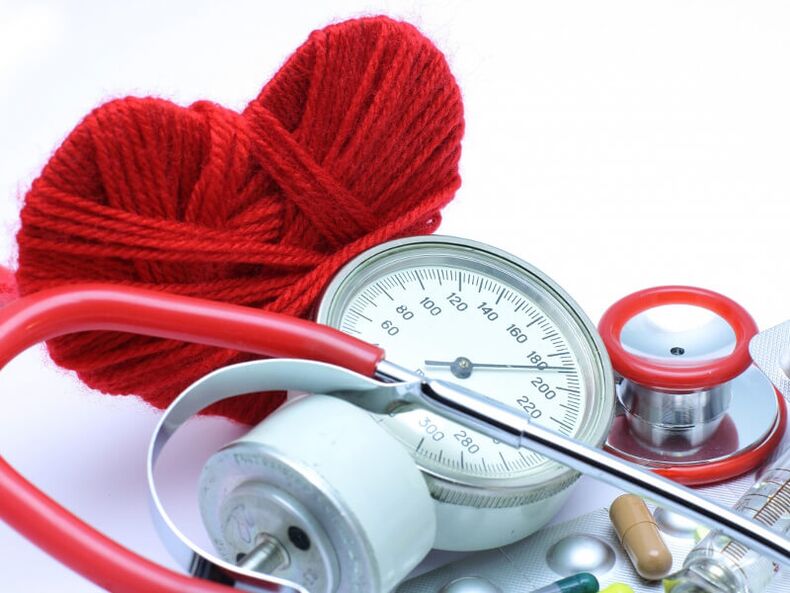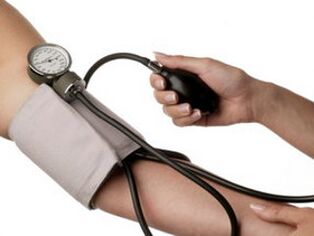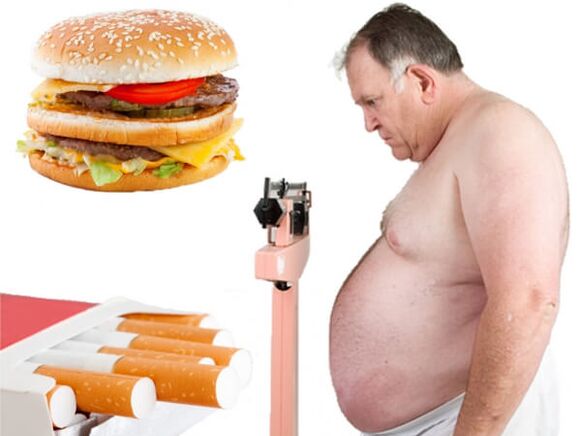
Hypertension is the most common disease of the cardiovascular system.
Hypertension is increasingly "rejuvenating" rapidly, today this is a disease not only of the elderly but often occurs in pregnant women and increasingly common in adolescents.
What is arterial hypertension? The answer to this question can be found in the definition of the condition of the disease.
It is characterized by chronically elevated blood pressure, when the highest value (systolic blood pressure) exceeds 140 mm Hg and the lowest value (diastolic pressure) above 90 mm Hg. subject to at least three measurements taken at different times in a person in a calm state.
Optimal blood pressure readings are 120-130 over 80-89 mm Hg, if they are higher then aggressive treatment of hypertension should be initiated. However, very few people are diagnosed with this disease in its early stages: about 35% of men and 55% of women know about their high blood pressure, only half of whom are enrolled in treatment for arterial hypertension, and only 6% of the male population and 20% of the female population control their pressure.
The sooner arterial hypertension is identified and kept under control, the greater the risk of developing complications of hypertension (ischemia, atherosclerosis, kidney disease, low testosterone levels in the blood, erectile dysfunction) in the future lower.
High blood pressure can be one of the causes of impotence in men.
It's useful to note
The main task of hypertension treatment is to keep blood pressure under constant control to avoid even more serious health problems, as the disease cannot be completely cured.
What is dangerous high blood pressure?
When high blood pressure persists, the walls of blood vessels thicken and lose their ability to dilate, which prevents normal blood supply and as a result saturates tissues and muscles with oxygen and other nutrients. organs, while reducing their functional activity. Let us consider in more detail what dangerous hypertension is:
- The hypertensive crisis- the most common exacerbation of arterial hypertension, which can occur both in the relatively good condition of the patient, and due to the patient's psychophysiological stress. Developing at a high rate, a hypertensive crisis causes a sudden increase in blood pressure, causing severe headache, dizziness, rapid or irregular heartbeat, nausea, and vomiting. At risk are people who are weather dependent, being in a pre-climate era.
- heart attack- complications due to hypertension can occur within minutes and lead to death. The main symptom is persistent pain.
- Stroke- Circulatory disturbance in cerebral vessels, cerebral hemorrhage, characterized by sudden severe headache, rapidly combined with other symptoms from the brain: slurred speech, distortion of the mouth, partial paralysis of the body. If emergency measures are taken and capillary transfusion is performed in case of hypertension, this process is reversible.
- angina pectoris- the disease is less transient. The violated heart causes the emotions to be seriously overloaded, overworked. Accompanied by intense dull pain in the chest, feeling unwell, may have frequent vomiting.
- Heart failure- a chronic condition of the heart muscle in which it is not able to deliver oxygen to the organs and tissues of the body. It is characterized by complete weakness of the patient, in which he cannot tolerate even basic physical activities: independent lifting, walking, etc. v.
- Coronary artery disease- Insufficient blood supply to the coronary arteries leads to inadequate nutrition for the heart. With careful observance of the prescribed antihypertensive treatment, it is not difficult to avoid the development of coronary heart disease.
- CKD- Kidney function is impaired, nerve cells are destroyed, and the ability to partially eliminate toxins from the body is lost. Arterial hypertension is the second leading cause of acute or chronic renal failure after diabetes mellitus.
- distortion of vision- occurs due to impaired blood supply to the retina and optic nerve. A sharp rise in blood pressure can cause constriction of the artery that feeds the optic nerve, damaging the integrity of the retinal vessels. Dangerously high blood pressure with pathologies such as retinal or vitreous hemorrhage: first leading to black spot formation in vision, second leading to loss of vision in the affected eye.
To avoid such dangerous complications, high blood pressure should be consulted by a doctor in time and conduct an examination, to help determine the stage of disease development and prescribe the necessary treatment.
Degree of hypertension: classification, types

According to the nature of the evaluation of one or more criteria, several classifications of hypertension are used.
Distribution of developmental stages such as origin, type of leak, degree of blood pressure, degree of target organ damage.
The main task in the diagnosis of arterial hypertension is to determine the nature of the disease. There are two big groups here:
- primary or essential hypertension - elevated blood pressure is the root cause;
- Secondary or symptomatic hypertension - high blood pressure caused by disease of other organs or systems: kidneys, heart, endocrine glands, lungs, thyroid gland.
According to experts
Treatment of symptomatic hypertension is not possible without treating the underlying disease and starting it. In some cases, along with the elimination of the underlying disease, the hypertension also disappears.
In addition, blood pressure, until hypertension, can increase due to improper intake of certain medications, neurological disorders, excessive use of caffeine and other stimulants.
When diagnosing essential hypertension, doctors often classify the disease according to the degree of blood pressure to select appropriate baseline hypertension treatments. According to international practice, there are three degrees of hypertension:
- 1 degree increase in blood pressure- systolic pressure 140−159 mm Hg, diastolic pressure 90−99 mm Hg. A mild form of the disease, in which abrupt changes in blood pressure are characteristic, may return to normal on its own and rise again.
- 2 degrees high blood pressure- systolic 160-179 mm Hg, diastolic 100-109 mm Hg. In the medium form, the increase in pressure is more prolonged, rarely falling to the normal value.
- 3 degrees high blood pressure- systolic over 180 mm Hg, diastolic over 110 mm Hg. Severe form, stable pressure at the pathological index level, severe complications, difficult to control medication use.
Separately, separate systolic hypertension occurs in about one-third of elderly people with arterial hypertension. This form is due to age loss of elasticity of the great vessels, often accompanied by myocardial infarction, coronary artery disease, congestive heart failure, and left ventricular hypertrophy. Blood pressure readings: systolic up to 160 mm Hg. or more, diastolic - less than 90 mm Hg.
Useful information
It is worth noting another subgroup - the so-called "white coat hypertension", when, under the influence of psycho-emotional factors, a person's blood pressure increases only at the time when the medical staff measures it. . In such cases, the diagnosis is clarified by repeated pressure measurements in a quiet home environment.
In addition to the degree of hypertension, at diagnosis also evaluate the risk factors that can lead to complications on the cardiovascular system and the clinical course of the disease:
- Transistor (first stage) turbocharger. The increase in pressure is cyclic, returning to the normal value; Drugs that lower blood pressure are not used.
- Unsustainable hypertension. An increase in blood pressure is directly related to a provoking factor: stress, severe psychological or physical stress. To stabilize the pressure, medication is needed.
- Stable arterial hypertension. Continuous elevation of pressure, in which severe supportive therapy is used.
- Malignant form. Increasing the pressure to very high, the disease progresses rapidly and leads to the development of serious complications.
- Crisis form. Periodic episodes of hypertension against the background of normal or slightly elevated pressure are characteristic.
The severity of hypertension and the risk of possible complications can only be assessed on the basis of a thorough examination: general and biochemical tests, echocardiography and other organs, electrocardiogram, check the ground. A complete examination of the patient with arterial hypertension is usually performed during the inpatient setting.
High blood pressure is the main warning symptom of hypertension in both men and women.

Symptoms of hypertension may not be present for a long time, and if a person does not regularly use a manometer, he can learn about his disease and already begin treatment for its complications. .
Often hypertension has no symptoms, except for its main symptom - persistent high blood pressure.
Furthermore, the concept of "persistent" or "chronic" is key here, because in some situations (stress, fear, or anger) pressure can build up and then return on its own. back to normal.
However, very few people control their pressure level, so you should pay attention to the following symptoms, which indicate the development of arterial hypertension:
- Headache. Usually manifests in the occipital, parietal or temporal region. It can happen both at night and right after waking up. As a rule, it increases with mental or physical exertion. Sometimes accompanied by swelling of the eyelids and face.
- Dizzy. Sometimes even with a little physical effort: cough, turn or tilt the head, increase sharply.
- Heart pain. Not only during emotional stress, but also at rest. Both long-lasting aches, squeezing pains, and brief, stabbing pains can occur. Does not go away after taking nitroglycerin.
- Strong heart rate.
- Noise in the ear.
- Visual impairment: veil, fog, "flies" in front of the eyes.
- Arterial disease: cold, intermittent extremities.
- Be swelled the leg. Indicates a violation of the excretory function of the kidneys or heart failure.
- Shortness of breath. It occurs both with exertion and at rest.
It's important to know
Hypertensive crisis - an emergency caused by excessively high blood pressure levels, can also be classified as symptoms of grade 2 and grade 3 hypertension. At the same time, patients with dynamic hypertensionGrade 1 pulse, strictly following the doctor's recommendations and implementing a diet for patients with hypertension, can completely disappear the unpleasant symptoms of the disease.
It cannot be said that the symptoms of hypertension in men and women are significantly different, but in reality, men are actually more susceptible to it, especially in the 40- to 55-year-old age group. . This is partly due to differences in physiological structure: males, unlike females, have a larger body weight, significantly greater blood flow in the vessels, which facilitatesHypertension.
On the other hand, women are more responsible for their health and lead a suitable lifestyle. The number of stressful situations at work, alcohol consumption and smoking is higher in men, but this no longer refers to the symptoms of hypertension, but to the cause of its development.
Treatment of hypertension with drugs and folk remedies
Treatment of hypertension, as well as other diseases that are difficult to diagnose and require ongoing treatment (diabetes, allergies, prostatitis and impotence), should be compiled and prescribed only by a specialist. . If restricting food, eating salty foods, avoiding alcohol and smoking, avoiding stress, and other treatable causes of hypertension do not normalize blood pressure levels, then antihypertensive medication will be prescribed. single.
When treating hypertension with folk remedies, side effects are usually absent. You don't have to run to the pharmacy to buy expensive drugs and stand in line for the doctor to write another prescription. All you have to do is take some time for yourself, change your diet, and learn to manage stress.
Causes of high blood pressure and the development of hypertension

The cause of arterial hypertension is still not completely clear, both internal systems and external factors play an important role in the development of the disease.
The main causes of high blood pressure are impaired blood circulation through the vessels, restricted flow to the left ventricle of the heart. In modern medicine, there is a completely plausible explanation for this - changes in the structure of blood vessels with age, the formation of blood clots and atherosclerotic plaques in their cavities.
If in symptomatic hypertension the cause of hypertension is caused by other diseases, then in primary hypertension, in particular this form which is observed in 85% of cases, the exact cause of the hypertension that is not identified cannot be identified. happen independently.
There are many risk factors that contribute to persistent high blood pressure, which are often thought to be the cause of hypertension. Including:
- Age, men over 55 years old, women over 65 years old. With age, the walls of blood vessels lose their elasticity, increasing the resistance to blood flow, so the pressure increases.
- genetic predisposition.
- Floor. As mentioned, men are more likely to have high blood pressure.
- Violation of fat metabolism, obesity (men with a waist circumference over 102 cm, women over 88 cm).
- Diabetes.
- Smoke. It increases blood pressure immediately, smokers with many years of experience are susceptible to vascular diseases.
- Alcohol abuse. A person's blood pressure drops by at least fifteen points.
- Eat too much salt. Eating too much sodium, the main component of table salt, is one of the most important causes of high blood pressure in hypertensive patients: sodium chloride prevents fluid removal from the body, increasing swelling. already high vascular force of the patient. Remember, the average person consumes three times the amount of salt needed, learn not to add salt to your food.
- Lack of physical activity, sedentary lifestyle.
- Exposure to stress.
- Disorders of cholesterol metabolism.
- The diet is not enough potassium.
- Increased levels of adrenaline in the blood.
- Congenital heart defects.
Various kidney diseases, late toxic pregnancy in pregnant women, regular intake of certain drugs, in some cases this also applies to oral contraceptives, should be assumed to be the cause of secondary hypertension. .
The above risk factors can be divided into two large groups:
- Can be eliminated by yourself or with the help of a doctor: treatment of obesity, reduction of blood cholesterol, amount of cigarettes smoked, amount of alcohol or salt consumed, weight loss, etc. v.
- Avoid the unlikely: age and genetic predisposition.
Therefore, people in the second risk group need to closely monitor their health, control and prevent hypertension. And for everyone who has at least one of the above factors, constantly monitor blood pressure levels and, of course, lead a normal and active lifestyle.





























